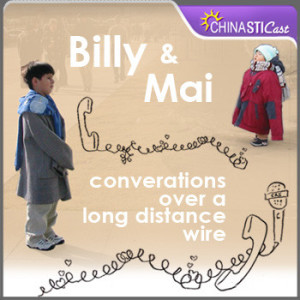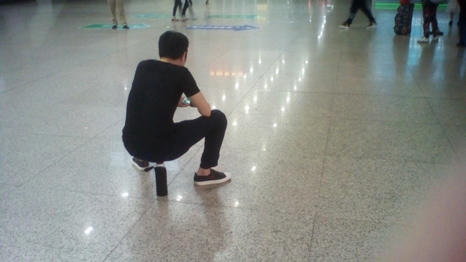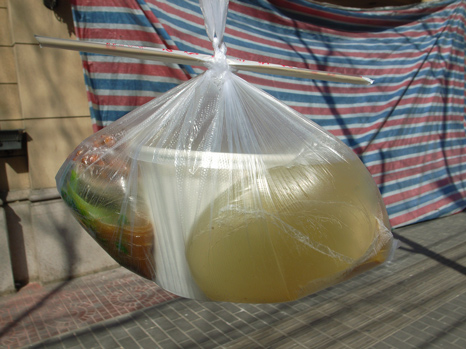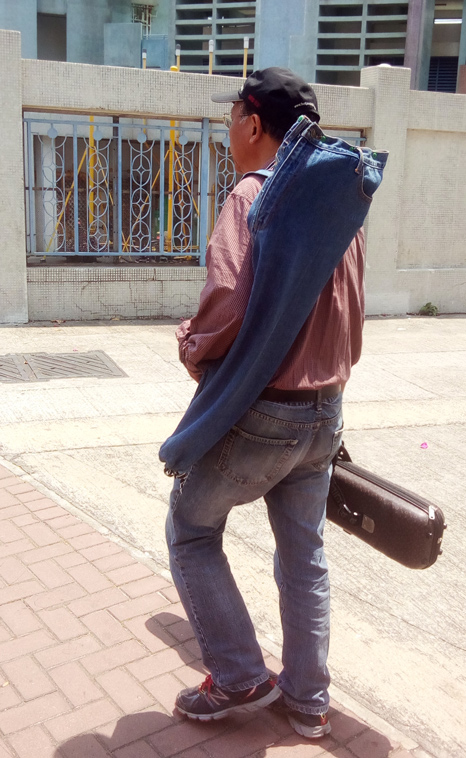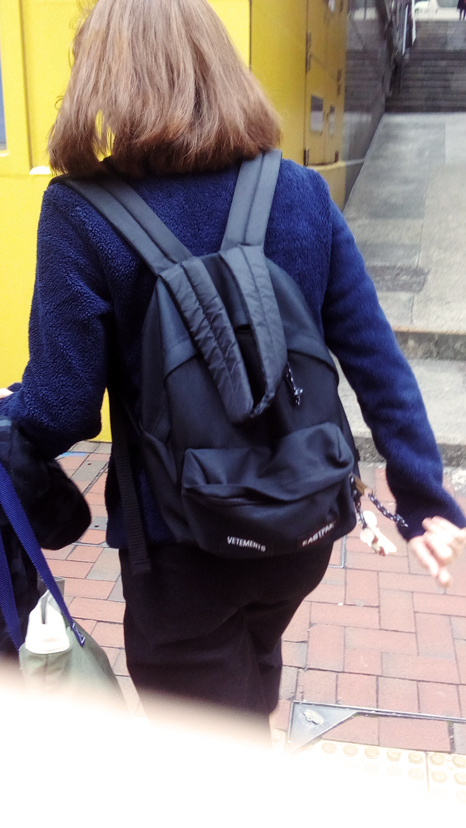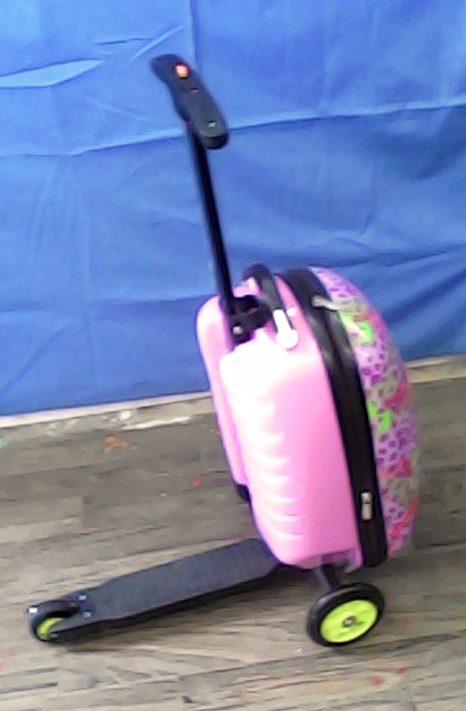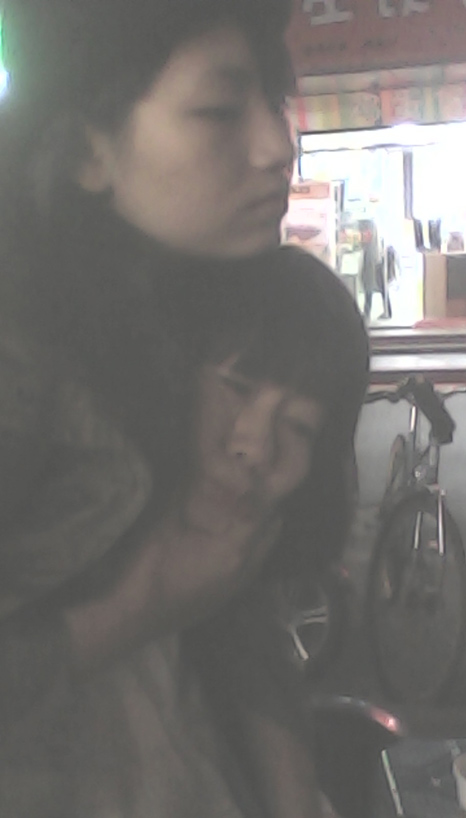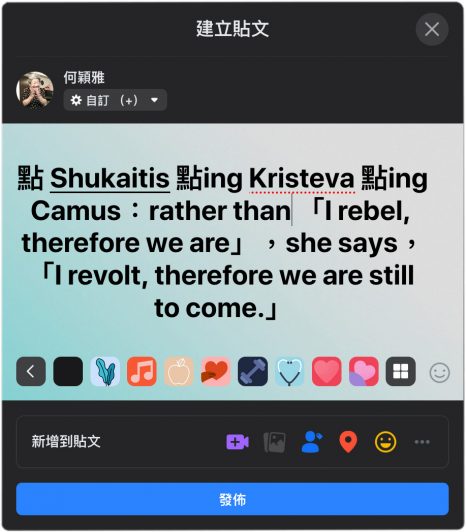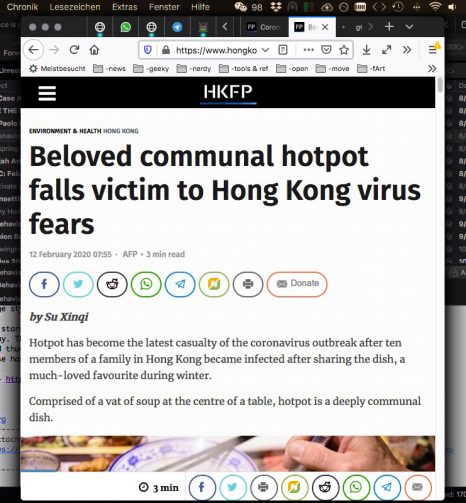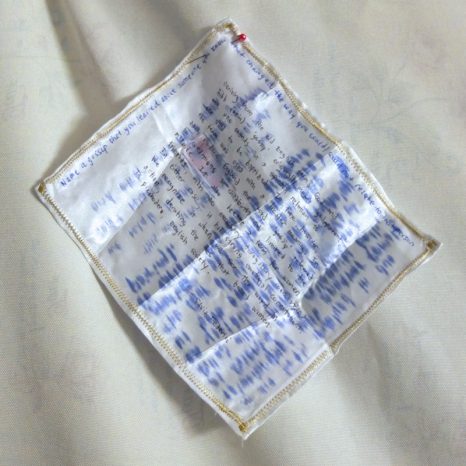i flew again on your birthday. that’s the excuse anyhow, for these weeks of greetingless-ness. but noticing that this makes for too many times of beginning with ‘sorry’ when the greeting finally comes, i don’t want to say sorry yet again——know i’ve already sucked the meaning of words dry these last years. too much has already been said, or if i did say it, something always warps and buckles along the way. bristles bend. it never feels right, and i detest this rightness. words overlap and cancel one another like low-res animations playing endlessly in an empty, unlit room.
actually it is now the third year in a row to be on an airplane on your birthday, perhaps the mark of a ritual. to be in air as excuse, to be full of air as metaphor, to be on flight mode as break of communication. to catch so much of your own breath there is no longer space for words. being in an airplane is kind of like that, anyhow, the quiet of disquiet, white noise turns pink turns brown, ears turn inwards.
perhaps rituals serve the same purpose: affirmations of meaning that do not really require words. small gestures repeated at certain intervals of time create affective knowledge, like knowing the amount of time before the sun’s blessings make Alÿsian-sized valleys of industrial blocks of ice. the valley of all that i could have said but did not spilled over the sides of the building, he sent American Greetings e-cards once a year, there was a click over a caress. she would rather say nothing at all than let it be said cheaply.
a no-rhythm rhythm. that’s the ritual. flight mode white-pink-brown noise, repetition, air-pressurised tinnitus, the rituals of getting older. i miss you sometimes and that is all. there is not much more efficacious beyond that. i really hope that you are happy, that your body fills with good air and songs of peace. the fact that i can no longer tell otherwise is perhaps the sign that there was no more space for me to know——air time——like the sound of a stranger’s breathing next to you on a long distance journey. it feels close because everything around is passing darkness, and you’re too timid to ask any more questions because you were once cursed for it. and because the best regard answers in words never bring you anywhere.
better to take a flight instead.
happy birthday and a new year, f
Posted by 丫 | more »
without cringing 2022 screenshots of january and june Posted by 丫 | reply »
沒有記憶的éŽåŽ» the first episode is goodbye
🐢 點iwishicoulddescribeittoyoubetter發起的時候åƒèˆ‡è€…haxi,今天GOODBYEéŽåŽ»æ™‚考å¤é‚„能挖出來這樣的一個回憶 💓ï¼05年在北京我第一份工作是給國際廣æ’é›»å°åšä¸€ç³»åˆ—英文æ’客。åƒhaxi所說的,「在preå¾®åšã€pre微信ã€pre移动互è”网时代,我们还åšè¿‡è¿™æ ·ä¸€ä¸ªä¸œä¸œã€‚[😎旺柴😎] ã€miss erminia,我電腦上有第16期,很想è½ä¸€ä¸‹ã€Œ💩 OHMYGAWD, I STEPPED IN POO 💩ã€é‚£æœŸï¼Œä½ 有嗎?⋯⋯OHMYGAWD 🎶 GOODBYE 2021ï¼Œæƒ³ä½ å€‘å‘€ï½ž
Posted by 丫 | reply »
å°æ”œå¸¶ç†è«–,å°èªª small carrier bag theories,small fictions
you avoid nostalgia
「没开始我就开始抗拒ã€
but all these things, you, around
「让我消化抗拒ã€
__
生日快樂 happy birthday,ying
(quotations from cyan,2021年6月5日)
Posted by 丫 | reply »keeping it together
“What exactly do I mean, even, by ‘style’? Perhaps it is nothing but an urge, an aspiration, a clumsy access of admiration, a crush. On what? The very idea. Form and texture rescued from chaos, the precision and extravagance of it, the daring, in the end the distance, such as I think I could never attain. As much in a person, in a body, as in prose: those people who can keep it together. ‘I like your style’ means: I admire, dear human, what you have clawed back from sickness and pain and madness. I’m a fan, too much a fan, of your rising above. I overestimate your power, loved writer, beloved essayist. What is it I want from you? Not quite comforting. Consolation. Is it consolation? A model of how to survive? The worst, most painful truth spoken as eloquently – or is it as strangely – as possible. The vantage it seems to me you have acquired. Of course I admire it because it seems to take you as writer, me as your reader, closer to the truth. By indirection find direction out. And so on: other clichés of the writing life. “ The problem essentially is this: I want control, and I want to let go, but neither in itself is art, and how on earth do you find a way between, a way to direct all of this ecstasy and ache? And still not lose it? (Virginia Woolf on essays: ‘Never to be yourself and yet always – that is the problem.’) Is there some combination possible of form and the formless that would achieve what I want to achieve? Is that not merely another name for compromise?â€
From Essayism by Brian Dillon
Posted by f | reply »dopamine pathways â„–2
— from Imaginal Machines, before that Revolt, She Said, before that The Rebel
Posted by 丫 | reply »â€œthese timesâ€
these times
these special times
these unusual times
these weird times
these difficult times
these uncertain times
these turbulent times
these strange times
these difficult and complex times
these harsh times
these dreary times
these trying times
these crazy times
these troubled times
these pandemic times
these distressing and surreal times
these extraordinary times
these times of crisis
times like these
—an index of “these times†as found in my inbox, spring/summer 2020
Posted by f | more »Textual Notes PWSSSRFS…
(there are reasons to think about my body and hygiene these days)
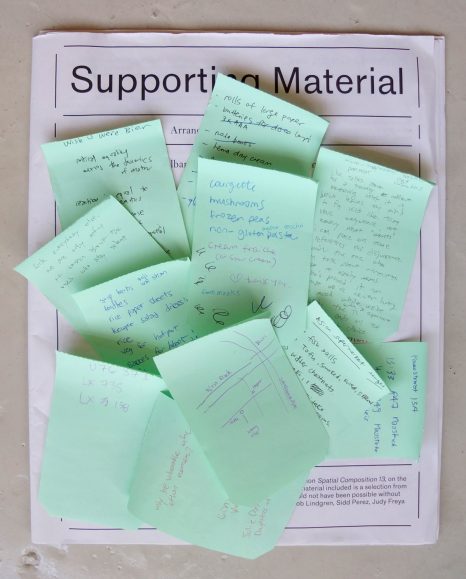
— Notes taken while on residency with Amy Suo WU at Motel Spatie; Arnhem Presikhaaf, 2020 January-February
In the time of that sojourn, a surface wound that stayed the entire time, irritated, flaming and hardened so much that it was narrated from being the oddity of a pimple on my hand to the paranoia of a wart-like abscess. It accompanied me during our conversations like a replacement for the biting of nails which had accompanied me since childhood, the extra psychosomatic conversation with myself to harmonise and discord with any other conversations going on in the room. And we spoke about intersectionality.
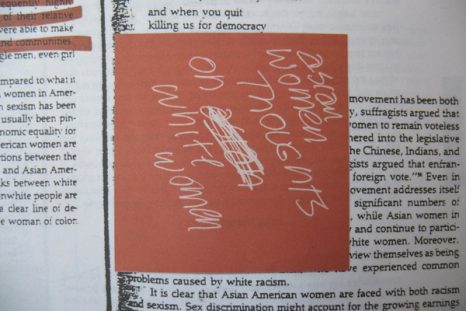
— from “Worlds in Collision: Multicultural Art History (Selection)” by Carlos VILLA, from Supporting Material by Celine CONDORELLI
I picked at it, making it bleed and scab over more than once, wondering if this would be the lifelong marker with which to remember this time. Other people get tattoos for such occasions, but somehow for me bruises, scars and mosquito bites were always enough. Sometimes I liked to think about the tiniest bit of spittle from an insect you never saw being smuggled transnationally, at peak seasons such that your body could carry two nationalities of mosquito saliva at the same time, recognisably different by the radius of red and degree of itch.
It was only a surface. But as my skin-scoring became manic, I remembered one of the first meals we shared together, when we were happy to find a few pairs of disposable chopsticks in the otherwise fork-and-knife-loaded space. A bit too brashly did I rip apart the two sticks and rub their ends together so as to smooth the rough edges in the way that we had learned, and somehow a little bamboo splinter had lodged itself into the meat between the thumb and forefinger of my right hand. This is the pressure point you are supposed to massage in order to release anxieties, and so it was that this residency——initially planned as an artistic labour——unfolded into my body subversively with a small army of histamines hardening a point known as åˆè°· hégÅ, or LI-4. Like a pain to help release pain.
I had been telling everyone that it had been such a difficult year for me, or for most people in my context, rather, but now, when I had limited this sabbatical purposefully to run back into the fire, that heat seemed to flake away into something much more quietly insurrectionary, like the last hibernation before the end of the world. What were we gathering amidst these stories and meetings, me picking self-consciously at a surface wound on the back of my hand and scheming in those vague ways afforded by poetry? Would it be possible to be productive about this care in letting go, somewhere in between concern and a manic extraction of the conversation one has with oneself, parasiting off of the glimmers of knowledge and joy and jealousy of these people around me. So many intensities.
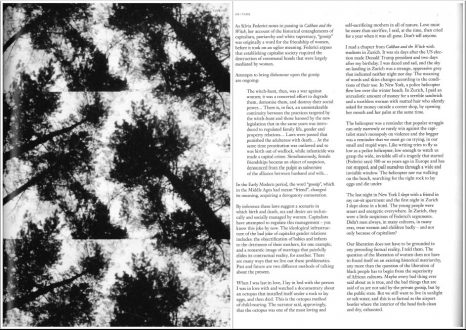
— “Witch-hunt: gossip has always been a secret language of friendship and resistance between women”, Hannah BLACK
In many parts of the world, women have historically been seen as the weaver of memory——those who keep alive the voices of the past and the histories of the communities, who transmit them to the future generations and, in so doing, create a collective identity and profound sense of cohesion. There are also those who hand down acquired knowledges and wisdoms——concerning medical remedies, the problems of the heart, and the understanding of human behaviour, starting with that of men. Labelling all this production of knowledge ‘gossip’ is part of the degradation of women——it is a continuation of the demonologist’s construction of the stereotypical women as prone to malignity, envious of other people’s wealth and power, and ready to lend an ear to the Devil. It is in this way that women have been silenced and to this day excluded from many places where decisions are taken, deprived of the possibility of defining their own experiences, and forced to cope with men’s misogynous or ldealised portraits of them. But we are regaining our knowledge. As a woman recently put it in a meeting on the meaning of witchcraft, the magic is: “We know that we know”.
— Witches, Witching-hunting and Women, Silvia FEDERICI
Among you, it becomes difficult to compare all that has been said to all that has not been said. All of these conversations. And these words are a conversation with those conversations, if not simply out of a question of translation but out of the need to make space for myself in this constellation of you(s) and me(s). To ascertain, like that book I took from your bookshelf: Feelings are Facts. We(s) would need to meditate through hours and hours of these discourses in order to sift though the medley of feelings that make up this moment, and that is a fact, too. Yes, as the witches say, “We know that we know“.
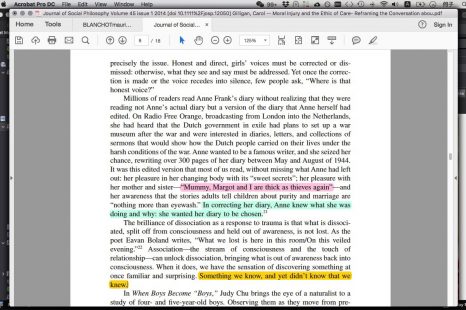
— “Moral Injury and the Ethic of Care: Reframing the Conversation about Differences”, Carol GILLIGAN
And maybe I know too many things. My head is filled with all sorts of banalities like the facial expressions of strangers and the taste of your favourite Grüner Veltliner and the prick of winter mosquitoes. Like the approximate sojourn of a piece of shit that appeared a few days after I arrived. It was the lack of anyone’s care to remove it from the narrow path between our residency room and the project space, making it such that you took the long route around every time, while I forged ahead to play hopscotch. I had the forethought that this dog I never saw had left the natural wastes of its circulating body just like the mosquitoes, and perhaps I should bring other contraband back this time as another memento of my stay. But an uncared-for poop was just a parallel temporary visitor like us to this space motel, and the day before I departed, what were now like hardened coal nubs finally blew away with that strange storm of not very much rain. Perhaps its winds were so great it blew its own rain away, a storm having a frightening conversation with itself. Its utterances came out like screeches and gales that shook the glass of our cove. From inside, we lifted our heads up in awe, and when we went outside we walked at strange angles with our heads down, pretending not to overhear. Buddha was also blown violently away that day, falling off of a neighbour’s balcony and left as an Asian corpse shattered in the white neighbourhood. In the beginning I kept thinking we would have been a strange sight here, our little crew, but actually there was nobody around most of the time, and we were left to play on our own like children at the slumber party. We stole time that way, turning their money and our own productivity into a space for taking care. Even so, I walked on that shit at least once, but you took time, and we cleaned up our tracks together. Self-quarantine, if you want to call it——I gained ten kilogrammes, too——but something else feels lighter because I know we had taken it on together. This takes space and so it was that ‘project ruimte’ was exactly that, not as the space for projects but a project to make space, as a fact of feelings between us——to read together with long pauses in between, to write letters from near and far, and to eat and resist the fallen communality of a shared meal out of one bowl. To be together and trust in someone else’s voice to guide when our eyes are closed.
I don’t know yet how to bring this space into visibility. And maybe it doesn’t have to, except as mischievous glances and giggles between those of us who know, and even if you don’t see us you will feel the smiles in our voices in that space behind your ears and in front of your neck——a tingling somewhere between an itch and a tickle to make chords and discords in you, too. Take care.
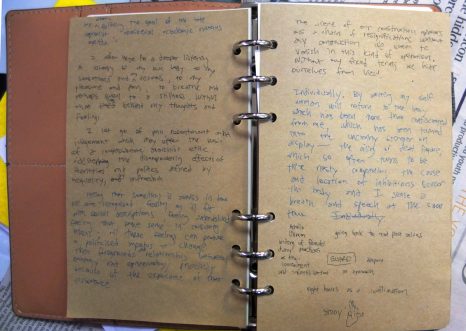
— Altered quotations and notes taken from the afwasdoekje reading group, PWSSSRFS No. 1, 2020 January 25
Posted by 丫 | reply »


